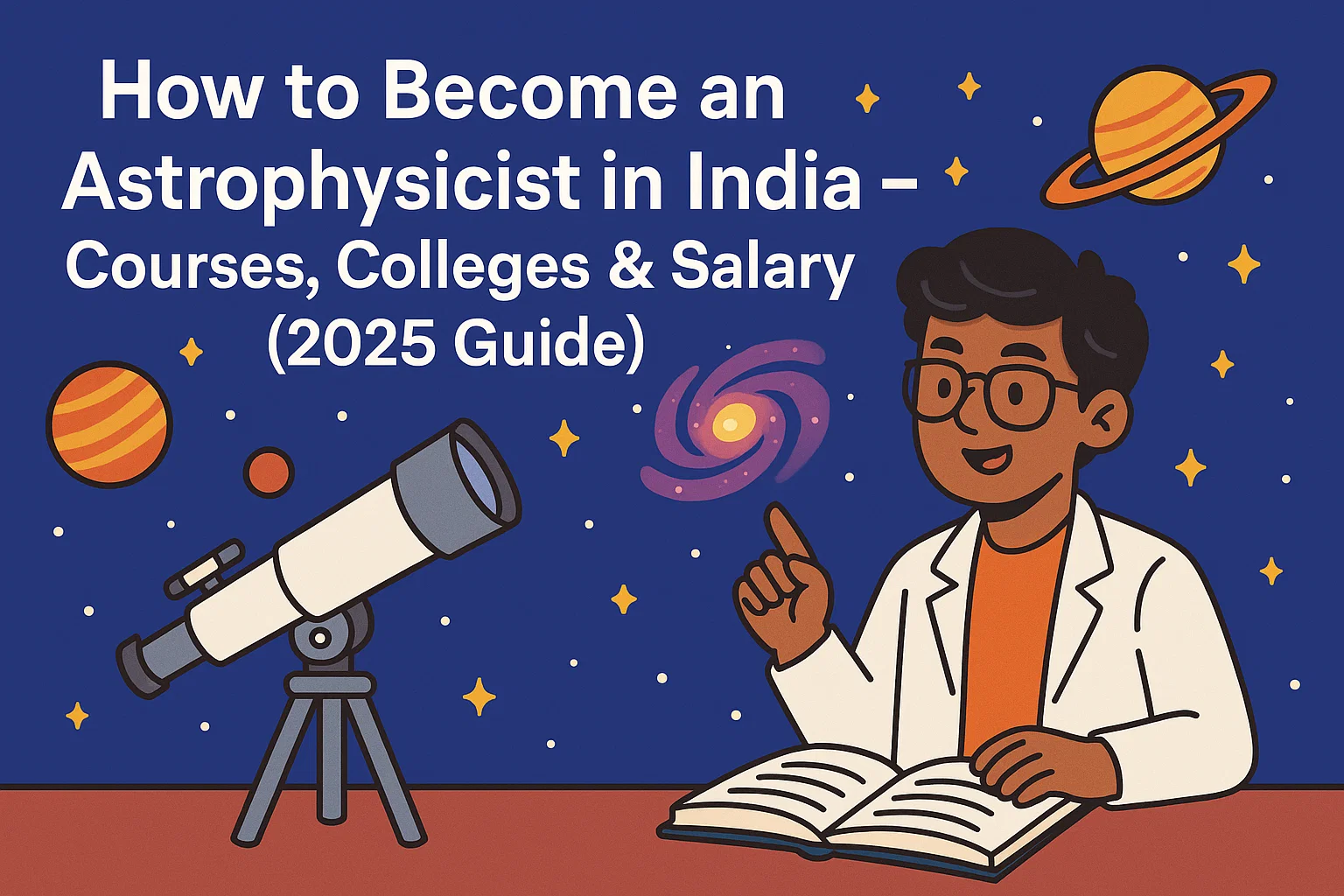If you’ve ever stared up at the stars and felt a sense of wonder, you’re not alone. That curiosity, that urge to ask what’s really out there, is where the path to astrophysics begins. It’s not just about gazing through telescopes—this field is about unraveling the laws that hold the whole universe together, from the tiniest particles to the largest galaxies. If you want to know how the universe started or what black holes actually do, you’re already thinking like an astrophysicist. This path demands real commitment, sharp math skills, and a hunger for solving deep mysteries. In India, the field is expanding fast, especially with ISRO making headlines around the world. The journey isn’t easy—there’s a lot to learn, and the work is demanding—but the reward is worth it: you get to unlock the secrets of the cosmos. Here’s how to start turning that dream into something real.
Who is an Astrophysicist?
An astrophysicist is a scientist who uses physics and chemistry to explain how stars, planets, and galaxies form, live, and die. Astronomy is about observing what’s out there, but astrophysics digs into how it all works. Astrophysicists lean heavily on mathematics and run computer simulations, analyzing huge amounts of data from observatories. The work often overlaps with cosmology—the study of where the universe came from and how it’s changed over time.
Educational Roadmap: Step-by-Step
Step 1: Schooling (Class 11 and 12)
Start by building a strong base. After Class 10, choose the science stream with Physics, Chemistry, and Mathematics (PCM). Make sure you’re comfortable with physics and calculus—they’re essential here.
Step 2: Undergraduate Degree (B.Sc. or B.Tech)
After school, you’ve got two main paths:
➣B.Sc. in Physics or Astrophysics. This gives you a solid theoretical foundation. You’ll study mechanics, electromagnetism, and the quantum experiments that shaped modern science.
➣B.Tech in Engineering. If you lean toward engineering—electrical, electronics, or computer science—you can make the switch to astronomy at the master’s level.
Step 3: Postgraduate Degree (M.Sc. or M.Tech)
Here, you start to specialize. Go for an M.Sc. in Physics with a focus on astronomy. Admissions usually depend on tests like JAM or JEST. This is the stage where theory gets really abstract, connecting physics with some truly big questions.
Step 4: PhD (Doctorate)
To truly become an astrophysicist, you’ll need a PhD. Expect three to five years of intense research, working on a specific problem, publishing papers, and adding something new to science.
Top Colleges in India
India has several top-notch institutes for astrophysics. If you’re aiming high, take a look at the leading three astrophysics colleges in the country—they set the benchmark for education and research in this field.
| Institute Name | Location | Key Programs |
|---|---|---|
| Indian Institute of Science (IISc) | Bangalore | Integrated PhD in Physical Sciences |
| Indian Institute of Astrophysics (IIA) | Bangalore | PhD and Integrated M.Tech-PhD |
| Tata Institute of Fundamental Research (TIFR) | Mumbai | PhD in Astronomy & Astrophysics |
| Inter-University Centre for Astronomy and Astrophysics (IUCAA) | Pune | PhD |
If you’re aiming for the Indian space program, keep an eye on IIST admission updates. They often open doors straight into space science.
Career Scope and Opportunities
Astrophysics in India is really taking off right now. You’re not just stuck in academia — there’s room to work with space agencies, observatories, or even private companies.
➣Space Agencies: Landing a job with ISRO, or teaming up with big names like NASA, is a huge goal for a lot of people.
➣Observatories: You get to be hands-on as an observational astronomer, running telescopes and collecting data.
➣Data Science: Those coding and data analysis skills you pick up? Tech companies want them too, not just research labs.
Space research organizations are always on the lookout for people who can make sense of tricky cosmic data.
Government and Research Institutes
The government puts serious money into space research. There are plenty of options with institutions under the Department of Science and Technology. Plus, you can check out lists of major scientific institutes across India to see where you might want to apply for research roles.
Salary Trends in India (2025)
Let’s be honest, you need more than just passion to build a career. Pay depends on your experience and where you work, but financial stability is definitely part of the package.
| Job Level | Average Annual Salary (INR) |
|---|---|
| Entry Level (Junior Research Fellow) | ₹3,50,000 - ₹5,00,000 |
| Mid Level (Scientist / Lecturer) | ₹8,00,000 - ₹12,00,000 |
| Senior Level (Senior Scientist / Professor) | ₹15,00,000 - ₹25,00,000+ |
Frequently Asked Questions
Q1. How do I become an astrophysicist in India after 12th grade?
If you’re finishing 12th with Physics, Chemistry, and Math, you’re off to a good start. Go for a Bachelor’s degree in Physics or Math—B.Sc. is the usual route, but a B.Tech works too. After graduation, you’ll need a Master’s in Physics or Astrophysics. From there, a PhD is the key if you want to get into research.
Q2. How to become an astrophysicist in India?
Most people start with a B.Sc. in Physics. Next, you’ll need to clear entrance exams like JAM or JEST to get into a good Master’s program. After your Master’s, you’ll take exams like NET or GATE for PhD admission. If you get into top places like IISc or IIA, you’re headed in the right direction.
Q3. How can one become an astrophysicist in India after tenth?
Right after 10th, pick the Science stream with Physics and Math. Work hard on your basics—these subjects are your best friends for all the entrance tests after 12th. Solid foundations now make everything easier later.
Q4. Is it difficult to get a job at NASA or ISRO as an Indian student?
ISRO’s pretty accessible for Indian citizens if you clear exams like ICRB. NASA is trickier—mostly because of citizenship rules. Still, Indian scientists often work with NASA through research collaborations or exchange programs, so it’s not impossible.
Q5. What is the difference between Astronomy and Cosmology?
Astronomy’s all about watching and studying things like stars and planets. Cosmology zooms out—way out—and tackles the big questions about the universe: how it started, how it changes, and what might happen to it. The fields overlap a lot, especially if you’re deep into research.

